The Westcoast Black Theatre Troupe in Sarasota, Florida, took its latest production outside under a balmy 82 degree evening with a full moon glowing over the marquee and offered a 90-minute mini-masterpiece in migrating a stage play to film. Recorded on stage April 24, 2021, the production of Dominique Morisseau’s Pipeline directed by L. Peter Callender will stream on demand May 1 to 23.
Pipeline explores the intersection of class, race, and urban violence and uses the crucible of a private academy classroom to shine a glaring spotlight on the failure of American education for the lives of Black families.
The title references the theme of The New Jim Crow: Mass Incarceration in the Age of Colorblindness, a provocative critique of the Prison Industrial Complex by Michelle Alexander that links the academic performance of elementary-school-age Black boys to the projected demand for prison cells by their senior year in high school.
But Pipeline’s protagonist, Omari, is unlike the stereotypical poor inner-city child of a struggling single mother with an absent or junkie father doomed to failure by the 4th grade. Omari is instead the upper-middle-class son of a public school English teacher, Nya, played to tightly wound near perfection by Renata Eastlick, and a prosperous but uptight professional father who never misses a tuition payment, Xavier, played by Joel PE King.
Set in New York City, the film, opens with the throbbing sounds of rap music overlaying ominous images of chaotic hallways of scrambling adolescents being disbursed by uniformed police officers breaking up a fight.
“I’m exhausted” was the only thing that Nya could say as she learns that her son was missing after an altercation with his teacher after a contentious class discussion of why Richard Wright’s main character Bigger Thomas struck out with such “savage” anger.
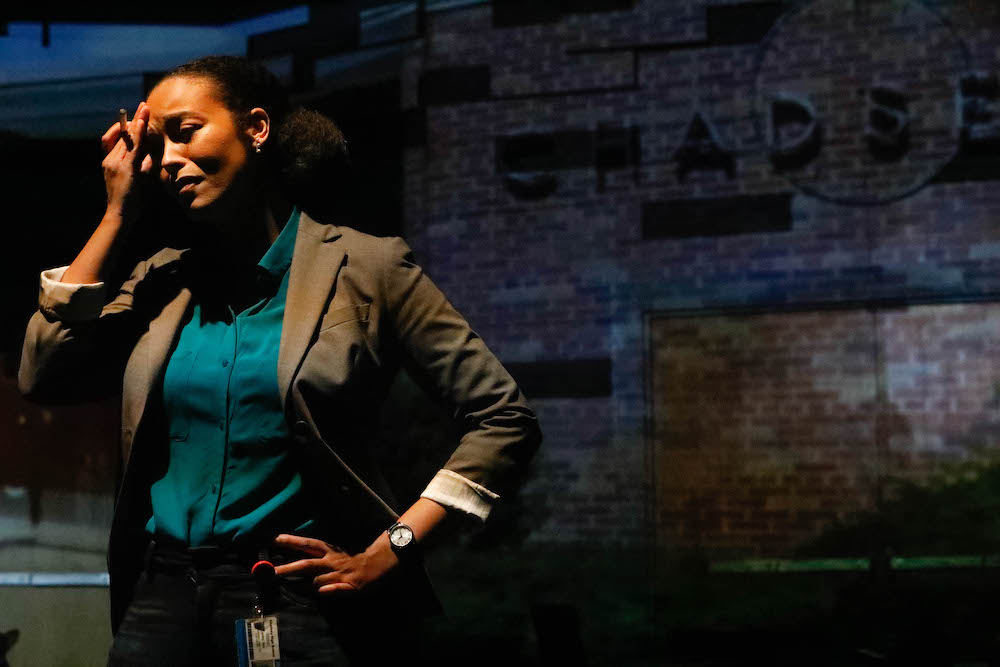
It’s all Nya can do to hold her nerves together by striking up a cigarette before her next class, which tackles the nuanced differences of a mainstream publishing house’s treatment of Gwendolyn Brook’s classic poem, “We Real Cool.” In a deft piece of classroom lesson planning, Nya, holding herself together, contrasts the mainstream publishing house’s treatment of the poem, straight drop capital letter followed by an ending comma, with the independent Black publishing house’s use of a graffiti font and Ebonics random structure. (The deft graphic overlays on the Smart Board behind her are thanks to Video Projections and Transitions Designer Jay Poppe.)
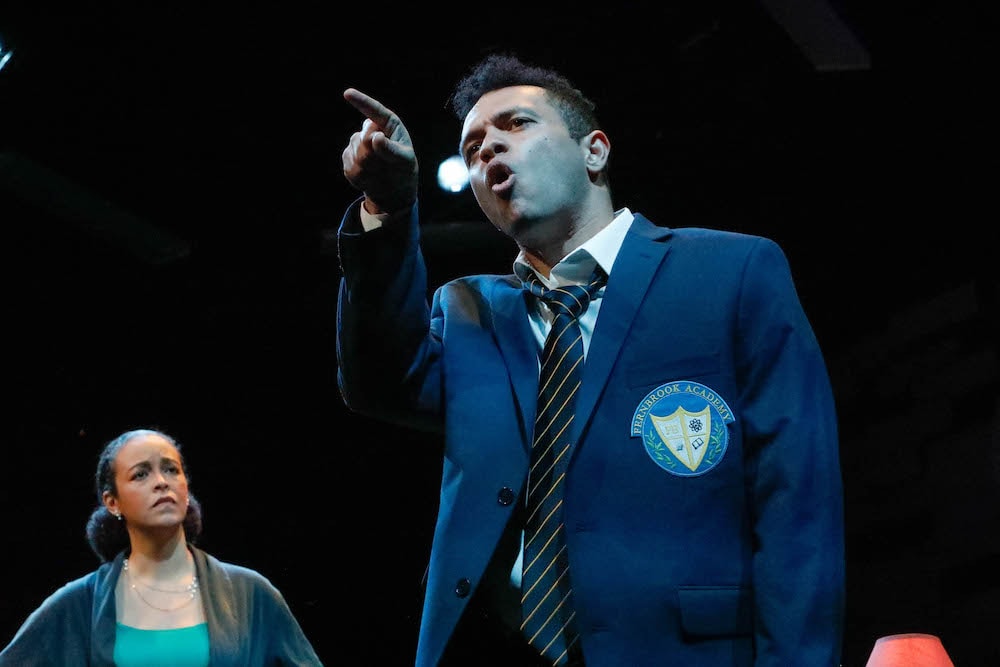
As Nya ponders where her son could be, the poem ominously describes the hedonistic lives of a poolroom full of disconnected youth and the four prophetic stanzas end with “We die soon.”
It seems the only one who gets Omari is his girlfriend, Jasmine (Emerald Rose Sullivan), as the scene shifts to her dorm room where Omari is hiding out while he plots his next move. Later she is confronted by Omari’s mother and tries to explain his behavior: “Sometimes people push you too far, make you feel like an animal from another jungle.” At that point, says Jasmine, “you become the expectation.”
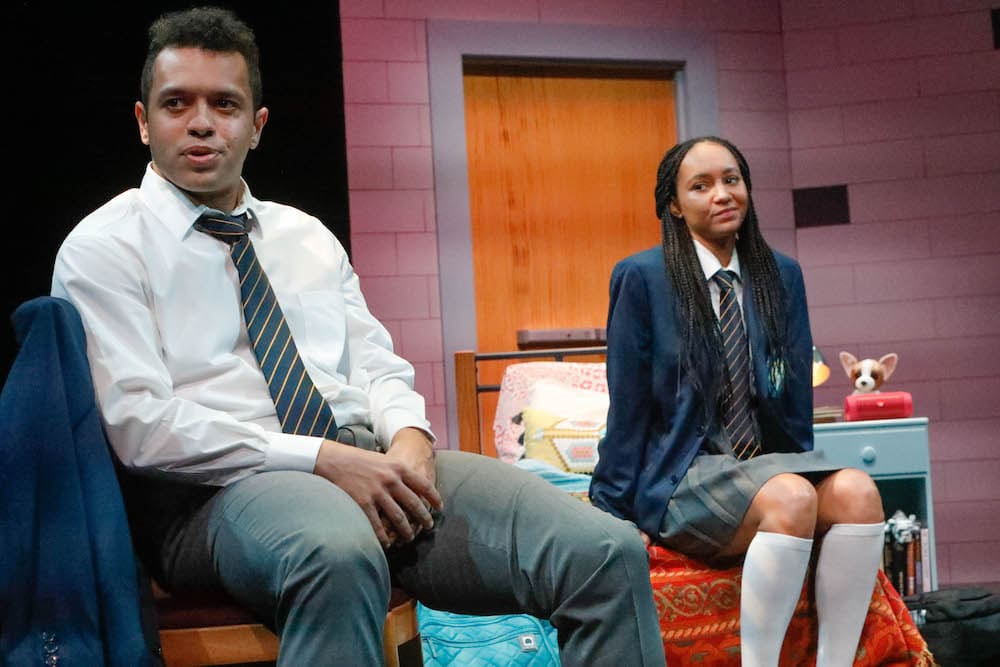
As Nya contemplates the potentially disastrous consequences of Omari’s “third strike” in the privileged halls of the Penbrook Academy, across town she retreats to the teacher’s lounge with long-suffering fellow veteran teacher Laurie (Emilia Sargent), just back from an extended medical leave to have plastic surgery to repair damage done from an attack by a student. During the lunch break, Dun, the school security officer and third member of the staff, stops by to offer Nya a ruby red apple in an apparent attempt to get back into her good graces, and Nya blows him off.
“This is war! Half these kids are suffering from mental illness and I know what they need,” says Laurie. “A good ass whipping can do the job.” There is no discussion of the consequences the inner-city thugs faced for attacking Laurie, only the constant threat of violence she and Nya face as the principal announces new restrictions on cellphones in the building.
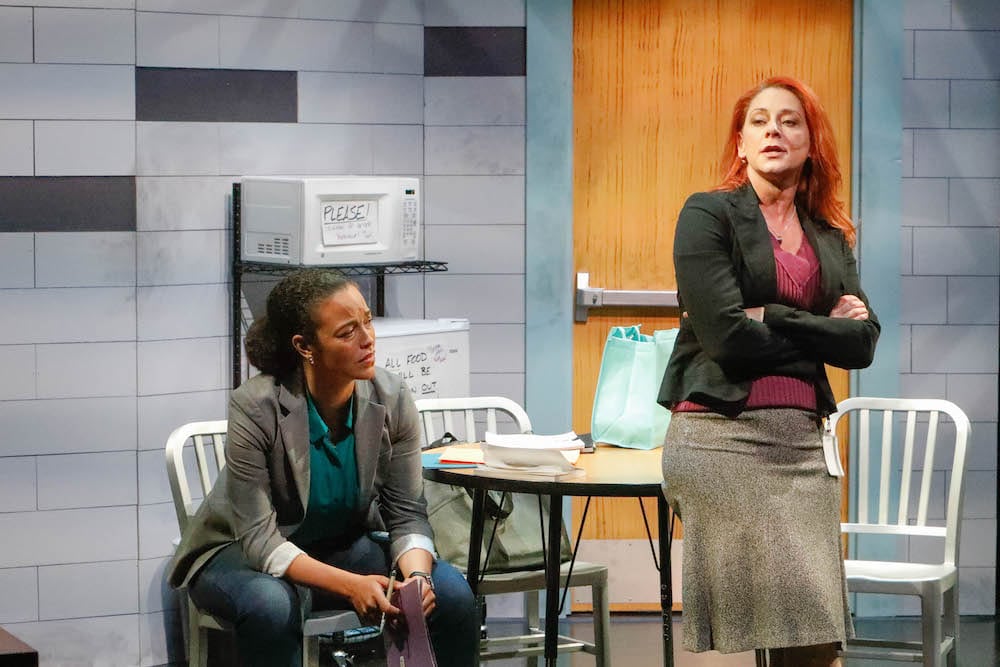
Omari later finds his way home and Nya learns about the “incident” as he tries to explain why he pushed back from being the teacher’s poster boy for Bigger Thomas’s rage.
“I’m not justifying the harm I did, but that teacher demanded my answer to what made the Native Son character explode. He said, Mr. Joseph, your participation is mandatory today or take a zero grade for the day.”
Nya demands to know, “What did I do? Did I hurt you? I still don’t know,” in a moment of guilt. Omari is not sympathetic and replies, “I’m hungry and need to cook us something,” as he realizes his mother’s depression has killed her appetite and nurturing instincts.
“I’m going to sit here and wait for instructions” is Nya’s last words as the scene fades to black.
The next day all hell breaks loose as Laurie recounts her 5th-period class that exploded into a fight where she hit a troubled student named DeShawn with a broom. “It was an ongoing beef and these kids are at war,” says Laurie as she tries to shift the blame to Dun for not replying to her call for security.
“Don’t try to take me down with you,” says Dun. “You can get an early retirement. What do I get working for minimum wage?” In the middle of the conflict, Nya collapses on the classroom floor from what Dun and Laurie suspect is a heart attack.
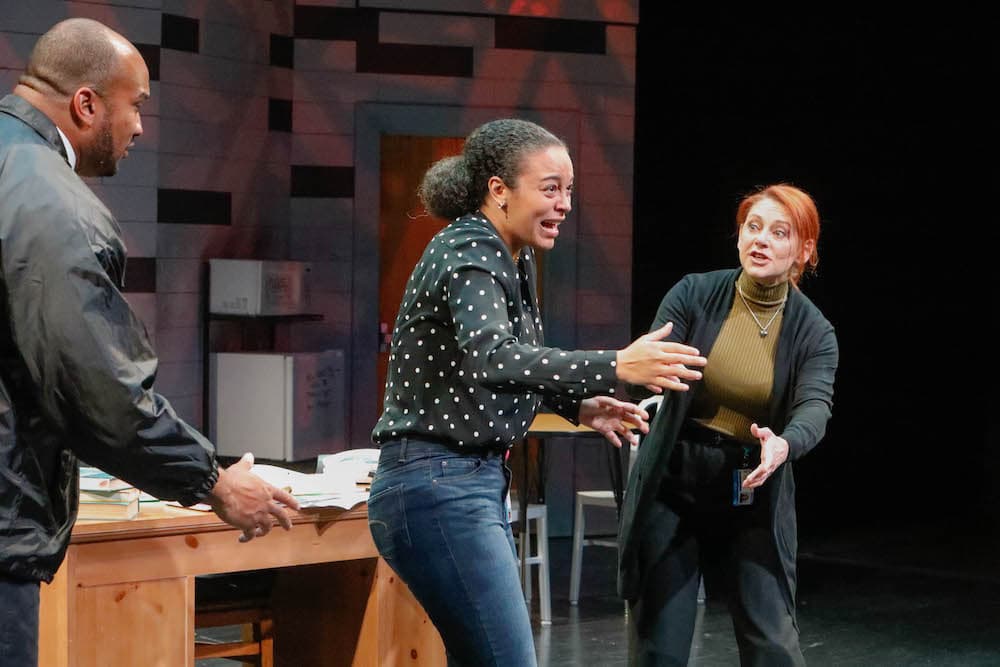
As the scene shifts to an emergency room waiting area, Omari’s father, Xavier, shows up in a huff and finds Dun comforting a numb and distracted Omari. “The doctor said it’s just a panic disorder not a heart attack,” Dun says. Xavier tries to sort out why Dun is even there as a testosterone-fueled stare down ends with Dun taking his leave.
Xavier confronts Omari: “I deserve to know!” In the most dramatic moment in the film, the showdown between the father and son finally unravels. “She was creeping, and you were too cold to care,” says Omari. “But you never missed a payment. I woke up with you on my mind. I tried to call to explain what made Mr. Joseph the animal explode!
“What kind of nigga sends checks and calls it fatherhood?” Xavier caves under the realization that his plans to take Omari’s custody from Nya is mission impossible. In the most touching moment in the film, Omari reaches out for his father as he turns his back to depart.
In a talkback Q & A session after the film, Donavan Whitney confessed that it was his “take” to use a strong body language gesture to reach out on the scene with COVID social distancing guidelines in place.
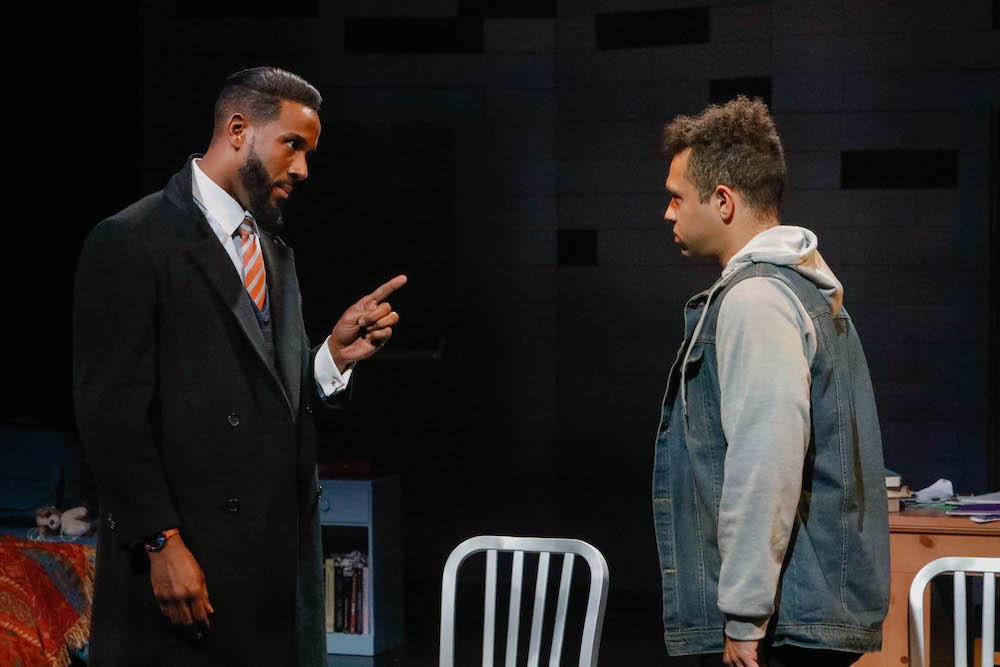
Despite the unresolved outcome on Omari’s “third strike: fate and Nya’s plea to the school’s leadership for leniency, the film ends on a positive note as Omari shares his list of nine “instructions” with his mother. When she asks what #10 is, Omari replies, “I’m still working on that”!
Founder and Artistic Director Nate Jacobs added, “This show is particularly relevant as America battles with institutional racism and societal inequities.” Based on what I saw and the feedback at the talkback session following the opening screening of Pipeline, the film will spark some thoughtful conversations in the community.
Outdoor screenings of the 90-minute film of Pipeline will take place at WBTT’s Theatre Arts Center from April 24 to 30, 2021, followed by streaming on demand from May 1 to 23. Visit WestcoastBlackTheatre.org for details.
© 2021 Malcolm Lewis Barnes





